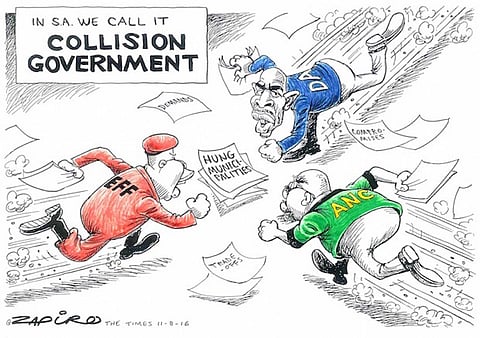The poll of 2,375 registered voters conducted this month by the South African Institute of Race Relations showed the ANC would win 51% backing based on a 72% voter turnout, down 5.2 percentage points since a February survey. The latest poll showed the Democratic Alliance winning 24% of the vote and the Economic Freedom Fighters 14%, the Johannesburg-based institute said.
Previous IRR poll: ANC support waning with Gauteng up for grabs
Another poll of 3,600 adults, who were interviewed face-to-face by research company Ipsos between March 22 and April 17, showed the ANC is likely to secure 61% support based on a 71% voter turnout, while the DA would get 19% and the EFF 11%.

